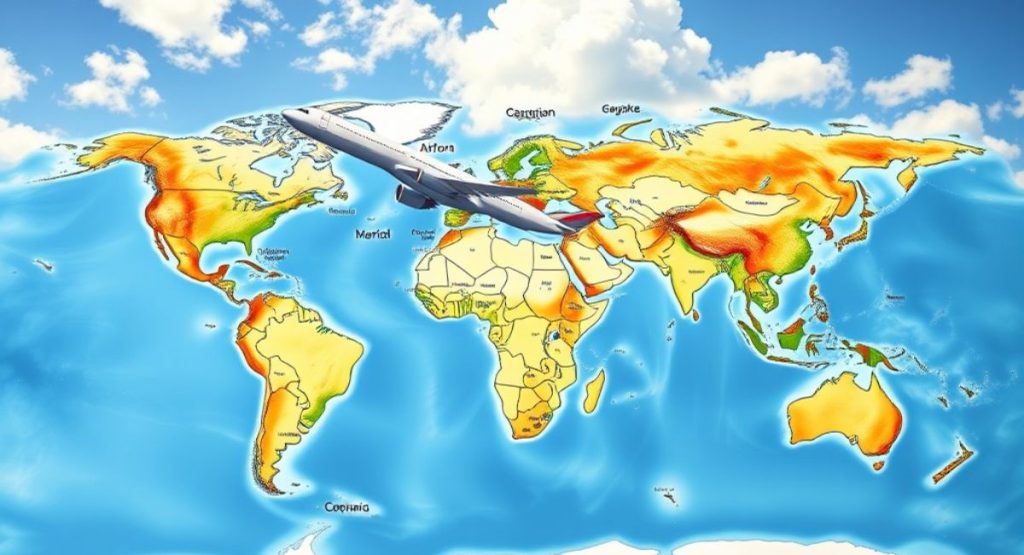Traveling to India is an exciting adventure, filled with vibrant culture, rich history, and diverse landscapes. However, before you can explore the wonders of this incredible country, you need to navigate the visa process. This blog post will provide you with essential information about obtaining an Indian visa, ensuring your journey is smooth and enjoyable.
Understanding the Types of Indian Visas
India offers various types of visas, each tailored to specific purposes. The most common visa categories include tourist visas, business visas, student visas, and employment visas. INDIAN VISA INFORMATION FOR TOURISTS.
Tourist visas are designed for those visiting India for leisure, allowing travelers to immerse themselves in the country’s beauty and culture. Business visas cater to individuals traveling for business meetings, conferences, or investment opportunities. If you plan to study in India, a student visa is necessary, which typically requires acceptance from a recognized educational institution. Those looking for work in India must obtain an employment visa, which usually necessitates a job offer from an Indian company.
Understanding the type of visa you need is crucial, as different categories come with distinct requirements and validity periods.
The Application Process
Once you determine the type of visa you require, the next step is to navigate the application process. The process can vary based on your nationality and the specific visa type. Generally, applicants must complete an online application form, pay the visa fee, and submit supporting documents.
The online application form collects basic information, including personal details, travel plans, and the purpose of your visit. It’s essential to fill this out accurately, as discrepancies can lead to delays or rejections. After submitting the form, you will receive a confirmation receipt, which you should keep for your records.
Visa fees vary depending on the type of visa and your nationality. Payment is often made online through credit or debit cards. Ensure that you check the official Indian visa website for the latest fee structure to avoid surprises.
Required Documents
Gathering the necessary documents is a critical part of the visa application process. While requirements may vary by visa type, certain documents are generally required for most applications.
A valid passport is paramount; it should have a minimum of six months’ validity beyond your intended stay in India and at least two blank pages for visa stamps. Additionally, you will need passport-sized photographs that meet specific requirements, such as size and background color.
Other common documents include a travel itinerary, proof of accommodation (like hotel bookings), and financial statements to demonstrate your ability to support yourself during your stay. Depending on the visa type, additional documents may be required, such as an admission letter for student visas or an invitation letter for business visas. Always refer to the official guidelines for the most accurate and up-to-date information.
Processing Time
Understanding the processing time for your Indian visa is essential for planning your trip. Generally, visa processing can take anywhere from a few days to several weeks, depending on various factors, including the type of visa, the volume of applications, and your nationality.
For instance, tourist visas may be processed relatively quickly, often within a week, while employment visas might take longer due to additional scrutiny. To avoid any last-minute issues, it’s advisable to apply for your visa well in advance of your planned departure date. Additionally, keep in mind that during peak travel seasons, processing times may increase due to higher application volumes.
Visa Validity and Extensions
Once you receive your Indian visa, it’s crucial to understand its validity and any restrictions that may apply. Tourist visas typically allow stays ranging from 30 days to six months, depending on your nationality and the specifics of your visa. EXTEND OR RENEW INDIAN VISA.
If you find yourself wanting to extend your stay in India, certain visa types allow for extensions, while others do not. Tourist visas, for example, can sometimes be extended under special circumstances; however, this is not guaranteed and usually requires a visit to the Foreigners Regional Registration Office (FRRO). It’s essential to check the latest regulations regarding visa extensions and ensure you comply with all legal requirements to avoid penalties.
Health and Safety Considerations
Traveling to India comes with its own set of health and safety considerations. Before your trip, it’s wise to check for any required vaccinations or health advisories. Common vaccinations recommended for travelers to India include hepatitis A, typhoid, and tetanus. Depending on your travel itinerary and activities, additional vaccinations may be necessary.
It’s also a good idea to have travel insurance that covers medical emergencies. Healthcare standards can vary widely, so having insurance ensures you can access quality care if needed. Familiarize yourself with local health facilities and emergency numbers to be prepared for any unexpected situations.
Cultural Etiquette and Travel Tips
India is a land of diverse cultures and traditions, and being aware of local customs can enhance your travel experience. Dress modestly, especially when visiting religious sites, and always ask for permission before taking photographs of people. Learning a few basic phrases in Hindi or the local language can also go a long way in fostering goodwill with locals.
When it comes to transportation, familiarize yourself with local options, including trains, buses, and auto-rickshaws. While public transport can be an adventure, consider using reputable taxi services or ride-sharing apps for convenience and safety.
Lastly, always carry a copy of your visa and passport with you while traveling in India. Having these documents readily available can help you navigate situations involving authorities or accommodations.
Conclusion
Traveling to India is an enriching experience filled with endless opportunities for exploration and discovery. Understanding the visa process is a crucial first step in ensuring your journey is enjoyable and hassle-free. By familiarizing yourself with the types of visas, application procedures, required documents, and local customs, you’ll be well-prepared to embark on your adventure in this vibrant country. Remember, a little preparation goes a long way in making your trip to India unforgettable.



